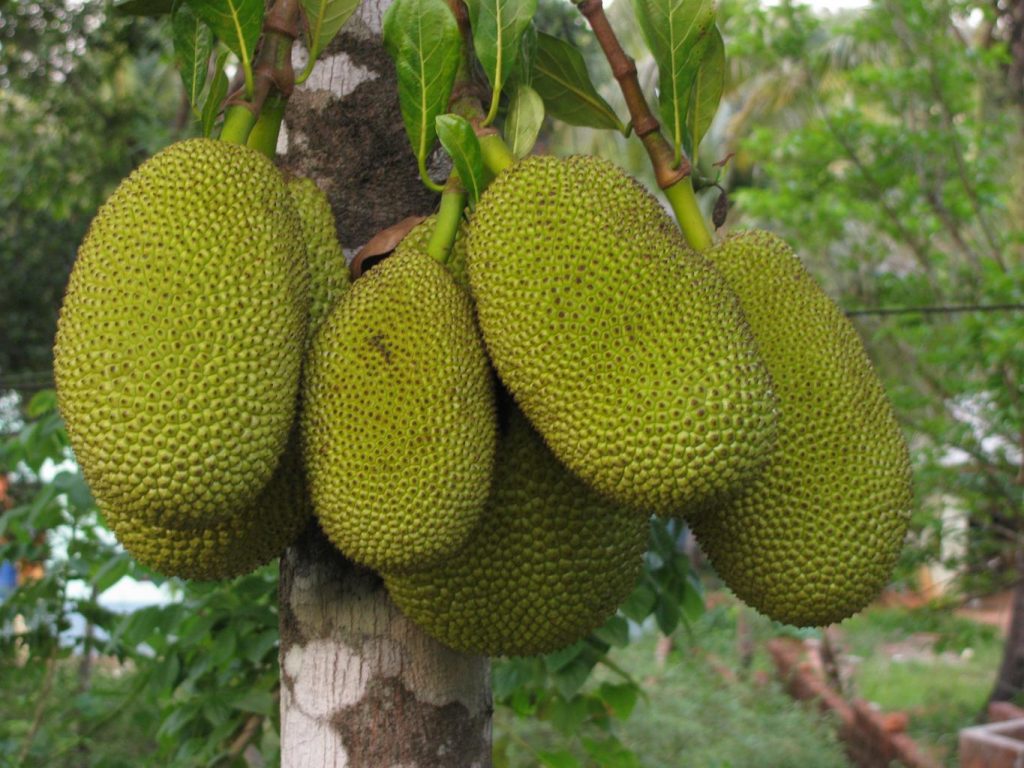Jackfruit (Artocarpus heterophyllus Lam.) is a very popular and well-known fruit in Southeast Asia. Jackfruit is so popular in Bangladesh that is, in fact, is the national fruit of the country.
Hello everyone, this is Chemniverse.
Today we will talk about jackfruit nutrition and see how the chemical composition of the fruit is related to the nutrition facts.
Jackfruit bears high nutrition value. It contains a lot of nutrients which gives its nutrition profile a very healthy look.
Jackfruit is a source of a moderate amount of calories. The majority of the calories are supplied by carbohydrates. 100 grams of edible jackfruit contain 30 to 35 grams of carbohydrates. One of the jackfruit’s most important properties is its protein profile. 100 grams of Jackfruit contain protein almost three to ten times as much as that contained by the same amount of apples, mangoes, and the like. So a mentionable portion of calories is also supplied by proteins. It should not be out of place to mention that fats present in jackfruit also provide some of the calories.
It has been found that, for every 100 grams of edible Jackfruit, we get around 93-95 calories.
Jackfruit is a fantastic source of potassium. Studies show that around 300 mg potassium in every 100 grams of jackfruit.
Foods rich in potassium have always been helpful for humans as they can play a vital role in controlling blood pressure.
Jackfruit contains a lot of fibers as well. To be specific, 100 grams of jackfruit provide around 2 grams of fibers in general. Because of containing a very good amount of fibers, it has got a very low glycemic index. Glycemic index is what tells you how rapidly your blood sugar increases after taking a meal. As jackfruits have got a very low glycemic index, it helps blood sugar management.
Also, the fiber present in jackfruit helps digestion and reduces the risk for heart diseases.
Another very important thing about jackfruit nutrition is it has many powerful and effective antioxidants.
Antioxidants prevent diseases caused by free radicals and oxidative processes and reduce risks for many chronic diseases.
Vitamin C is a very important type of antioxidant present in jackfruit. 10-12 mg of vitamin C is present in every 100 grams of sliced jackfruit. Vitamin C is perhaps the most important vitamin for developing a good immune system. But there is no such mechanism inside our body that can produce vitamin C. So we have to eat foods containing vitamin C. And living these days, the covid-19 era, you cannot but know how important the role of vitamin C is against viral infections! But vitamin C has got other surprising benefits too.
For example, it is also very effective against skin diseases. Jackfruit also contains vitamin A, which also prevents many diseases.
Another important type of vitamin contained by Jackfruit is vitamin B3, also known as niacin.
Our body needs niacin for the metabolism process. 100 grams of jackfruits can supply up to one-fourth of our daily needs of niacin.
Jackfruit also contains a lot of carotenoids.
Some of the carotenoids are α-carotene, β-carotene, neoxanthin, luteoxanthin, zeinoxanthin, lutein, β-cryptoxanthin, etc.
These carotenoids are effective against diseases like cancer, cardiovascular diseases, etc.
If you look at jackfruit’s nutrition profile you would also find some phenolic contents, which are believed to prevent heart diseases.
Many phytonutrients are also provided by jackfruits. Among them, isoflavones, saponins, and lignans are the most important ones.
These nutrients fight against cancer, ulcer, and hypertension.
Jackfruit is a great source of almost all kinds of minerals. We mentioned potassium before.
But calcium, iron, magnesium, sodium, zinc, copper, etc are also present in a good amount in jackfruit.
Though we talked only about the chemical composition and nutrition facts of jackfruits, we cannot forget how tasty it is and how unique its flavor is!
Oh! What a blessing Jackfruit has been for us!







